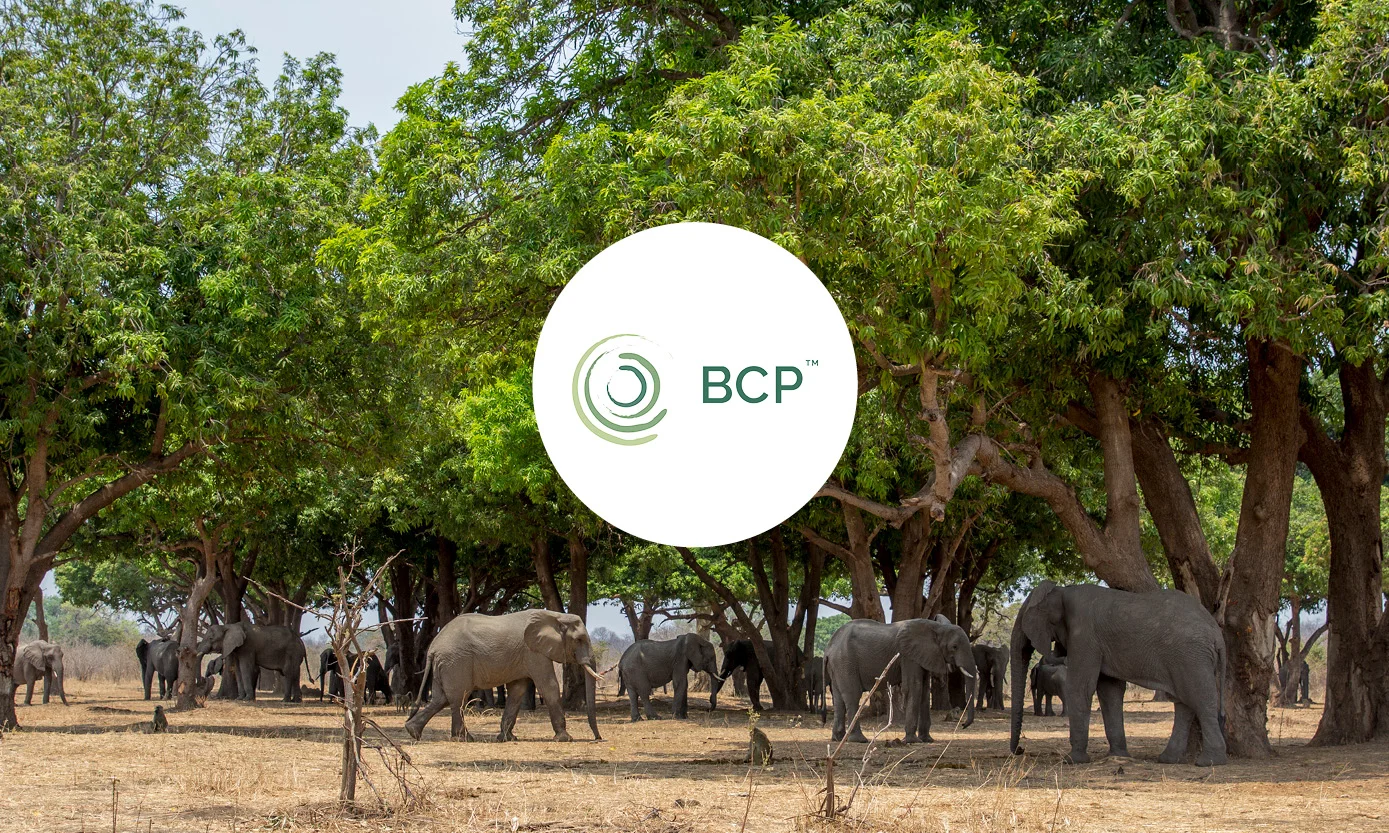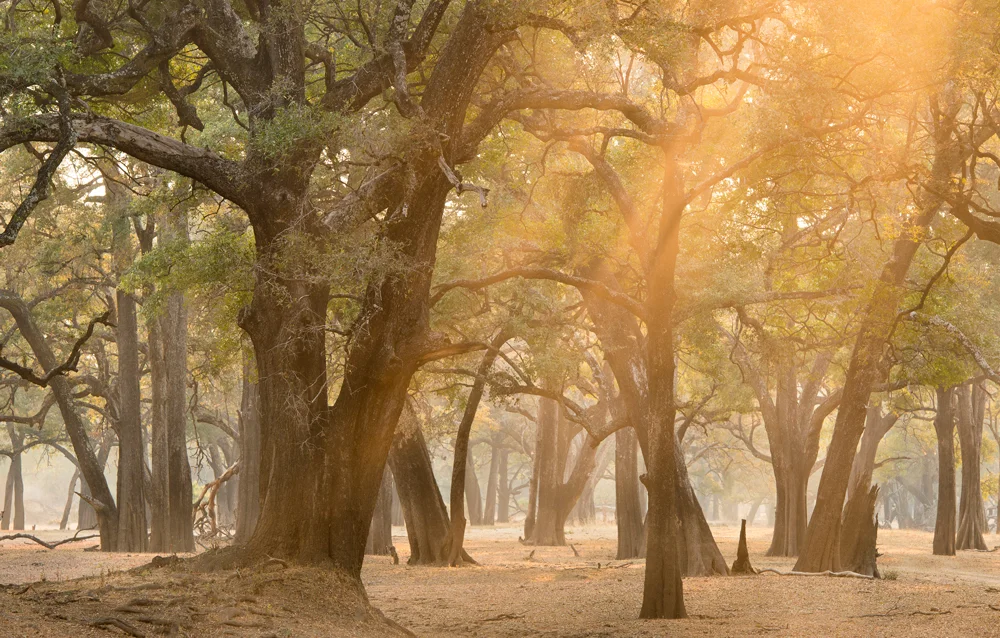BioCarbon Partners
Making Forests Valuable to People in Zambia
Zambia is a country of vast woodlands and floodplains, diverse wildlife, and a relatively low- but rapidly growing- rural human population density. The country is heavily dependent on charcoal for household energy use, which combined with agricultural expansion results in one of Africa’s highest rates of deforestation, at about 500,000 hectares annually.
BioCarbon Partners (BCP) is a for-profit social enterprise founded in 2011 that addresses these challenges by work-ing to make the country’s forests and wildlife valuable to rural communities. BCP does this primarily through the development and sale of carbon offsets, working in partnership with local communities and landowners. The sale of carbon offsets provides the revenue to protect and conserve natural forests in some of the country’s most important ecosystems.
BCP’s pilot carbon forestry project in Zambia is the Rufunsa Conservancy, which comprises 41,000 hectares lying adjacent to Lower Zambezi National Park, and part of a larger transboundary conservation system with Zimbabwe’s Mana Pools National Park. This project began in 2012 and has been verified four times by the Verified Carbon Standard- the leading global certification system- and is triple-gold certified under the Climate, Community and Biodiversity Standards.
BCP is currently bringing to verification a much larger and more ambitious project comprising community forests in the Luangwa Valley, Zambia’s most important wildlife area.
These two projects provide connectivity between the Luangwa Valley and the Zambezi Valley, and create linkages between transfrontier conservation areas spanning four countries (see map above).
$800,000
In benefits distributed to local community stakeholders from BCP projects, impacting 11,990 households.
15,000
Elephants living across the Lower Zambezi and Luangwa ecosystems, where BCP is working to connect key protected areas.
99,000
Number of people benefitting from BCP activities
Delivering Conservation Impact through Carbon Markets
BCP’s projects are designed to improve forest man-agement in partnership with local communities and landowners. Independent project verification standards for carbon offset projects have strict requirements for monitoring impact on forest condition and management.
BCP’s overall project coverage represents more than 130,000 hectares of forest saved from clearance and degradation over the next 10 years. Forest encroachment has been virtually eliminated on Rufunsa Conservancy during the past five years since BCP’s project began. In addition, wildlife, which was virtually absent when the project started, has begun to return, with large groups of sable and roan antelope now living in the conservancy. Lion have also returned to Rufunsa, with small prides resident each of the last three years.
Community relations have been a key to this turnaround, with 91% of surveyed residents of communities working with BCP’s Lower Zambezi REDD Project claiming that their household benefits from the project, while 80% report earning more income from conservation farming techniques introduced by the project, according to a recent independent survey.
In the Luangwa Valley, on-the-ground management is at its early stages, but there is enormous potential impact from improved management across the 1 million+ hectares of forest that are now under Community Forest Management Agreements in this landscape. BCP’s business model of financing conservation through carbon offset sales can bring an important new form of conser-vation enterprise to the region and to conservation efforts in Zambia, with significant potential to scale up and add value to other conservation initiatives.







